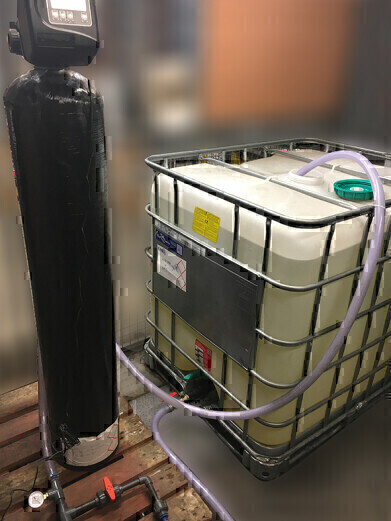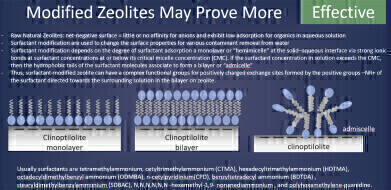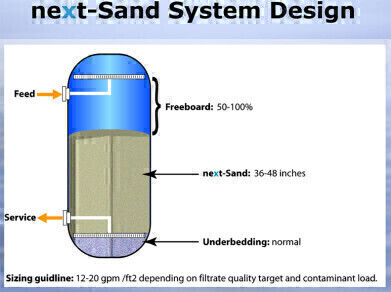Water/Wastewater
Innovative PFAS removal technology addresses water contamination
Aug 25 2023
Nextech, is combatting the issue of PFAS (per- and polyfluoroalkyl substances) contamination in drinking water through groundbreaking removal technology. This endeavour has garnered Nextech a substantial six-figure grant from the esteemed United Kingdom Government’s Innovate UK organisation.
Distinguished from conventional techniques employed within the water industry, such as reverse osmosis, ion-exchange resins, and granular activated carbon, Nextech introduces its innovative SMZ technology. This technology boasts remarkable attributes that enable the successful binding of PFAS within existing water infrastructure. The unique approach merges two cutting-edge methodologies: a cost-effective clinoptilolite capture/filter augmented with a natural surfactant formulation (FGX3) for the elimination of anionic substances, coupled with electrocoagulation for efficient extraction of PFAS from backwash effluents.
A Dynamic and Cost-Efficient Solution
Steve Fox, President of Nextech, stated, "Acknowledged as persistent 'forever chemicals' with degradation timelines surpassing 1,000 years, PFAS presents a critical challenge. The grant from Innovate UK accelerates our technological advancements, empowering us to assist the water industry with a potent and economically viable retrofit solution."
Insights from a recent study conducted by the U.S. Geological Survey (USGS) revealed concerning concentrations of PFAS across tap water samples from 716 locations, potentially impacting up to 45% of households.
Eradicating Harmful Chemicals
Fox emphasised, "Our end-product introduces an innovative and budget-friendly capture/filtration solution for PFAS elimination. This technology incorporates advanced surface chemistry modifications to enhance capture efficiency and capacity. Furthermore, we've devised a PFAS concentration and removal system for backwash effluent, ensuring the prevention of toxic chemical re-entry into the environment and reducing disposal expenses."
Understanding PFAS
Per- and polyfluorinated alkyl substances (PFAS) encompass nearly 5,000 industrial chemicals commonly used for water and oil repellent treatments in diverse applications such as food packaging, consumer goods, textiles, cosmetics, and firefighting foams. These chemicals, released during manufacturing, usage, and disposal, have infiltrated over 90% of European rivers and have been detected in fish within the UK's fresh, estuarine, and coastal waters, as monitored by the Environment Agency.
PFAS have a propensity to accumulate and pose risks to both humans and wildlife. Numerous studies, including research from EFSA and legal actions against DuPont involving 70,000 individuals, have associated PFAS exposure with adverse health effects.
Nextech's multifaceted approach to PFAS includes:
Technology 1: Leveraging the distinctive properties of high-purity, hydrophobic natural zeolite (Clinoptilolite) filter media for PFAS capture. This certified filter media offers superior filtration performance, high flow capacity, reduced backwash frequency, lower capital costs, and extended media longevity.
Technology 2: Introducing innovative surface conditioning (FGX3) involving yeast heat-shock protein (HSP) blend and natural surfactant complexes. This approach significantly enhances anion capture for PFAS removal, with notable stability and efficacy across varying conditions.
Technology 3: Treating backwash PFAS concentrate via advanced electrolytic coagulation methods for complete removal before any environmental impact. The effectiveness of plasma vortex final destruction is also being explored as an option for onsite capture and destruction.
Events
WEATHER • CLIMATE • WATER / EARTH OBSERVATIONS / GREEN ECONOMY
Oct 29 2024 St. Petersburg, Russia
Oct 30 2024 Hong Kong
Nov 05 2024 Toronto, Canada
Nov 06 2024 Ho Chi Minh City, Vietnam
Nov 12 2024 Valencia, Spain






..jpg)








